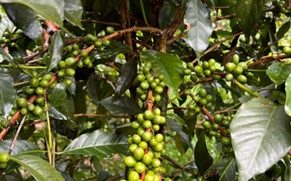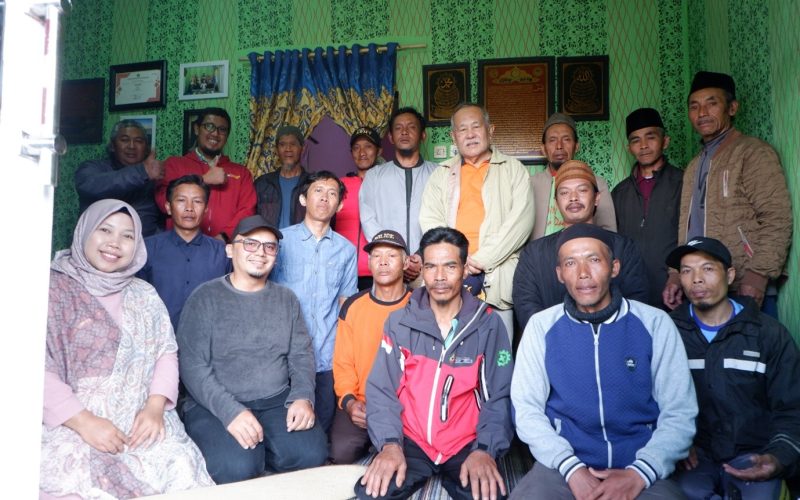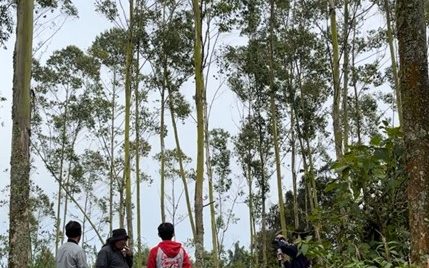In an effort to boost the potential of local coffee, the Faculty of Biology at Gadjah Mada University (UGM) organized a coffee cultivation training session in Sikunang Village, Dieng, Wonosobo, on June 29-30, 2024. The Mitra Village Team from the Faculty of Biology UGM consisting of Prof. Dr. Suwarno Hadisusanto, S.U., Ganies Riza Aristya, S.Sc., M.Sc., Ph.D., Dr. rer. Nat. Abdul Rahman Siregar, S.Sc., M.Biotech., Dr. Miftahul Ilmi, M.Sc., and Dr. Dwi Sendi Priyono S.Sc., M.Sc. present with alumni speakers and national coffee practitioners and activists, Edi Dwi Atmaja, S.Sc., M.S., owner & COO of Katamata Coffee Roastery, first roastery. This activity aims to increase the productivity and quality of coffee, one of the main agricultural commodities in Indonesia, by providing the necessary skills and knowledge to farmers. This initiative aims to enhance the productivity and quality of coffee, a key agricultural commodity in Indonesia, by providing farmers with the necessary skills and knowledge.
Coffee is one of Indonesia’s leading commodities, with significant economic resources tied to its production. However, the sector still faces challenges that require special attention from the government and other stakeholders. The training session, therefore, focused on improving agricultural productivity and food production, which are crucial for ensuring food security and economic growth in the region. The two-day training was attended by local coffee farmers and Head of Village of Sikunang. The program included theoretical sessions on coffee plant biology, pest and disease management, and practical demonstrations on modern cultivation techniques. The goal was to equip farmers with the tools they need to increase their coffee yields and improve the quality of their produce.
Prof. Dr. Suwarno Hadisusanto, S.U., a leading researcher from the UGM Faculty of Biology, emphasized the importance of such training programs. “By enhancing the skills and knowledge of our local farmers, we can significantly boost coffee productivity and contribute to the overall economic growth of the region,” he said. “This is in line with the Sustainable Development Goals (SDGs) that focus on improving economic resources and food security”. The training also highlighted the importance of sustainable farming practices. Farmers were introduced to organic farming methods and the benefits of using natural fertilizers and pest control measures. These practices not only improve the quality of the coffee but also ensure the long-term sustainability of the farming ecosystem.
Participants were enthusiastic about the training and expressed their gratitude to UGM for organizing the event. “This training has been very beneficial for us. We have learned new techniques that will help us increase our coffee production and improve our livelihoods,” said Sutikno, a local coffee farmer. The UGM Faculty of Biology plans to continue its support for local coffee farmers through regular training sessions and follow-up visits. This ongoing support is crucial for maintaining the momentum and ensuring that the farmers can apply what they have learned effectively. The initiative is part of a broader effort to promote local agricultural products and enhance the economic resources of rural communities. By focusing on key commodities like coffee, UGM aims to drive economic growth and improve food security in the region.
In conclusion, the coffee cultivation training in Sikunang Village is a significant step towards realizing the full potential of Indonesia’s coffee industry. With continued support and collaboration, local farmers can achieve higher productivity, better quality produce, and a more secure economic future.



